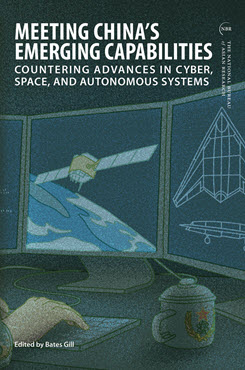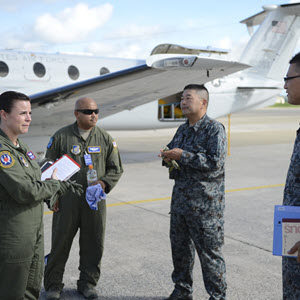Essay from NBR Special Report no. 103
China’s Military Modernization in Autonomous, Cyber, and Space Weapons
Implications for Taiwan
This essay finds that given China’s acceleration of its military modernization in cyber, autonomous, and space weapons in recent years, coupled with the lessons drawn from Russia’s war in Ukraine, Taiwan will need to speed up the pace in procurement, staffing, and training and brace for asymmetric joint operations.
EXECUTIVE SUMMARY
MAIN ARGUMENT
China’s autonomous-, cyber-, and space-related systems will play an important role in both gray-zone coercion and the warfighting threats confronting Taiwan and other like-minded regional partners across the entire spectrum of threat contingencies, from incursions to invasion. To that end, China is most likely to resort to hybrid threats, such as cyber-electromagnetic operations to achieve cognitive effects or space-electromagnetic operations to disrupt and block Taiwan’s command, control, communications, computers, intelligence, surveillance, and reconnaissance (C4ISR). Kinetic missile attacks by the People’s Liberation Army (PLA)—with target acquisition powered by Gaofen-series reconnaissance satellites and navigation guided and timed by the BeiDou satellite system—would worsen the situation on the ground and lead to widespread fear and confusion. In the meantime, the PLA could selectively leave certain communication backbone networks functional to allow information, disinformation, and influence operations to convey images of climbing death tolls, horrifying damage, and, most importantly, panic. These kinds of operations would likely be waged and implemented throughout the whole process of a PLA invasion. The software-defined radio apparatuses installed in unmanned aerial vehicles (UAVs) capable of communication relay allow for the creation of self-organizing networks and thereby possess counter-electromagnetic capabilities in defense of Taiwan’s air-defense systems.
POLICY IMPLICATIONS
- Training in information operations, particularly the psychological operations training sessions and workshops that the U.S. military provides in the U.S. and Taiwan, would greatly assist Taiwan’s special operations forces, reserve forces, and political warfare officers.
- The U.S. should collaborate more closely with Taiwan’s advanced information technology industry in the development, manufacture, and deployment of low-earth and medium-earth orbit communications satellites. Such cooperation would not only enhance Taiwan’s C4ISR survivability and resilience against PLA threats but also strengthen supply chain security and bolster Taiwan’s position as a key player.
- Advanced UAVs, such as the MQ-9, are welcome and much needed to support Taiwan’s asymmetric warfare strategy. U.S. support in terms of the provision of data links, GPS navigation, and real-time intelligence is indispensable.
Yisuo Tzeng is an Assistant Research Fellow of the Cyber Warfare and Information Security Division at the Institute for National Defense and Security Research in Taiwan.



